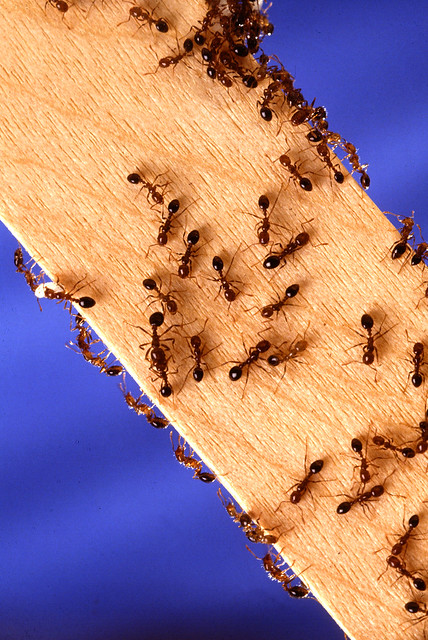
Warmer weather in many parts of the country means more opportunities for outdoor activities. Whether it’s a picnic, backyard barbecue, or even an intimate wedding ceremony, no one wants to feel the painful sting of the red imported fire ant.
The red imported fire ant is a formidable pest. It carries a powerful venom in its painful sting, which can be life-threatening to some humans and small animals. Since being introduced in the United States in the 1930s, it now infests around 300 million acres. The annual cost of control and damage to agricultural, recreational, urban and industrial activities as well as to wildlife exceeds $6 billion.
Given the high cost and danger the pest poses, it is vital that any program designed to control the red imported fire ant be given a fighting chance to succeed. This is where USDA scientists really stepped up. Researchers from the Agricultural Research Service (ARS) and the Animal and Plant Health Inspection Service (APHIS) used a protein from the fire ant’s own venom to develop a highly effective field test that can tell fire ants apart from other ant species in as little as 10 minutes.
ARS entomologist Steve Valles in Gainesville, Florida, developed new antibodies that are used in a new portable test kit for quick identification. Valles did this important work in collaboration with former APHIS laboratory director Anne-Marie Callcott and ARS entomologist Charles Strong. In addition to being quick and effective, the test kit does not require special training to use.
This field kit is particularly valuable at ports of entry and truck inspection stations to let authorities quickly check for fire ants. Cargo infested with fire ants may be subject to quarantine when leaving certain areas of the country, such as the southeastern states. The quarantine is much more effective when implemented with this accurate and easy-to-use field kit.
